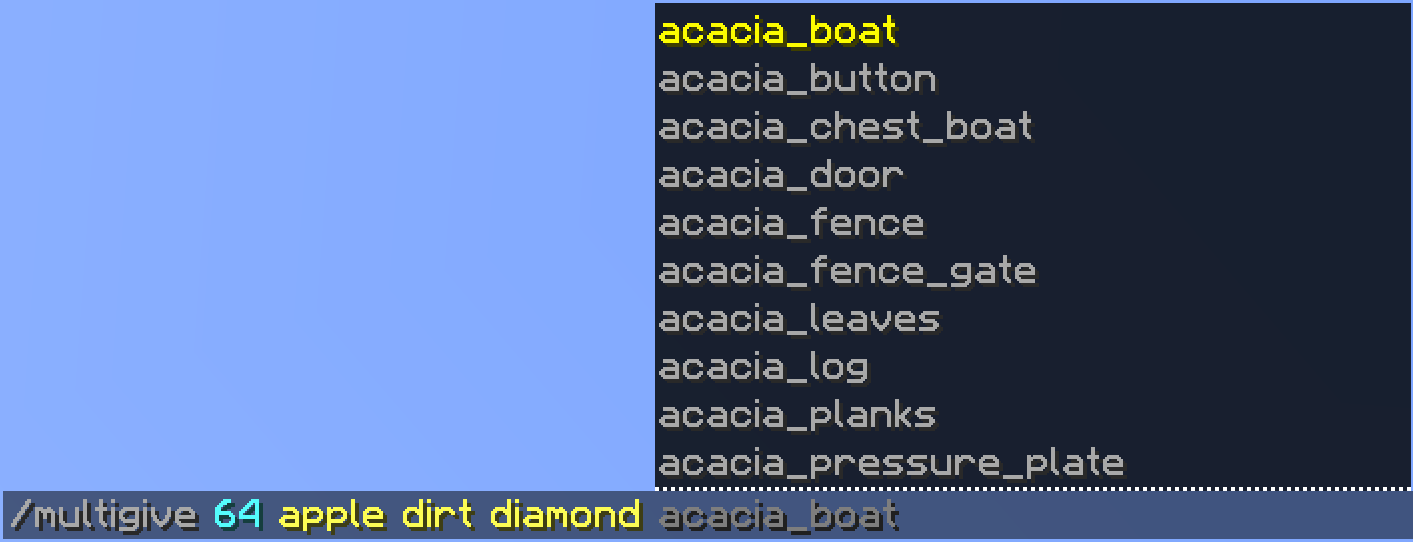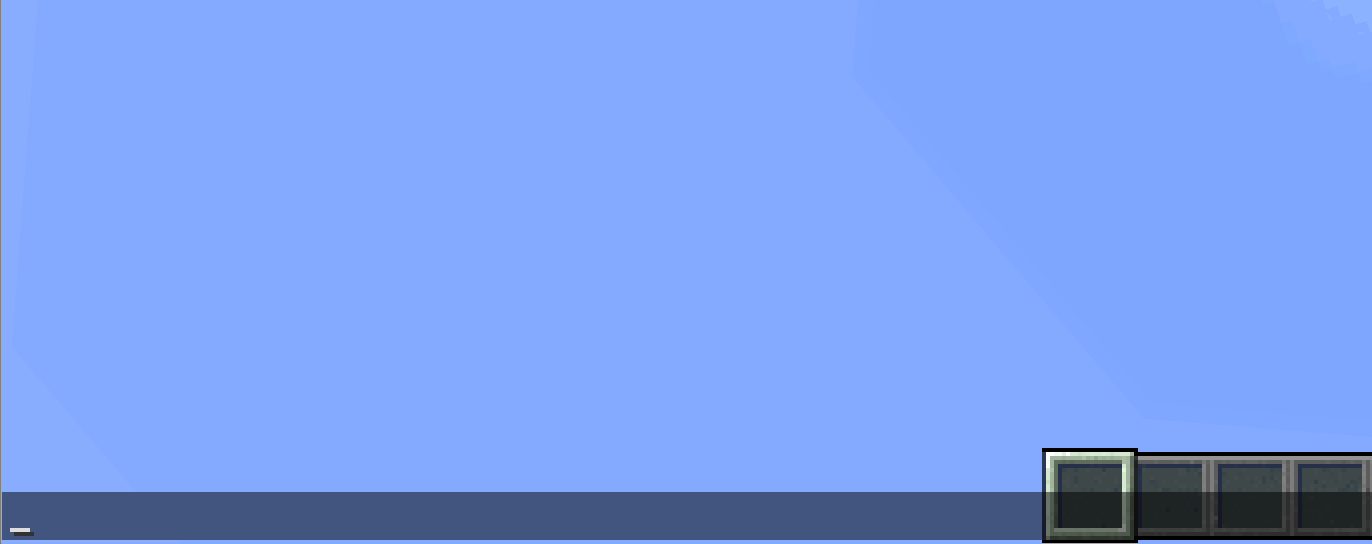List arguments

List arguments allow users to provide a list of values. This argument can take on two forms:
- Using an underlying
GreedyStringArgument, so the greedy string argument rule applies - this argument can only be used at the end of an argument list. - Using an underlying
TextArgument, so this argument can be used anywhere in an argument list, but its contents must be surrounded with quotes (").
The ListArgumentBuilder
Unlike other arguments, because this argument can be interpreted in various different ways, this argument can only be created using a ListArgumentBuilder, instead of directly accessing the ListArgument constructor. The ListArgumentBuilder loosely follows the following format:
Construction
First, you have to create a ListArgumentBuilder parameterized over the type that the list will generate. For example, if you want to create a list of Strings, you would use new ListArgumentBuilder<String>.
- The
nodeNameparameter represents the name of the node to use for the argument. - The optional
delimiterargument specifies the delimiter (separator) to use between entries. If a delimiter is not provided, a space" "will be used as the delimiter.
public ListArgumentBuilder<T>(String nodeName);
public ListArgumentBuilder<T>(String nodeName, String delimiter);Allowing duplicates (Optional)
If you want your users to enter duplicate entries in your list, you can use the allowDuplicates method to set whether duplicates are allowed. By default, duplicates are disabled.
When duplicates are enabled, items that have been entered before can be displayed again in the list of suggestions:
ListArgumentBuilder.allowDuplicates(true);
When duplicates are disabled, items that have already been entered will not appear in the list of suggestions:
ListArgumentBuilder.allowDuplicates(false);
Providing the list
The ListArgument requires a list that the list argument can pull suggestions and validation from. The ListArgument does not support values which are not present in the provided list. There are three methods that can be used to provide a list for the ListArgument:
Providing an immutable list (a list that doesn't change) using the
Collection<T>parameter:javapublic ListArgumentBuilder withList(Collection<T> list);Providing a list that is determined when suggestions are being displayed to the user and before the command has been executed using the
Supplier<Collection<T>>parameter:javapublic ListArgumentBuilder withList(Supplier<Collection<T>> list);Providing a list that is determined when suggestions are being displayed to the user and before the command has been executed; that also depends on the
SuggestionInfopresent when running the command, using theFunction<SuggestionInfo<CommandSender>, Collection<T>>parameter:javapublic ListArgumentBuilder withList(Function<SuggestionInfo<CommandSender>, Collection<T>> list);
Providing a list mapping function
In order to display suggestions, the ListArgument needs to know how to convert a list entry to a string. For example, a Location may be converted into "x,y,z". The ListArgumentBuilder provides three methods for providing a mapping function:
The
withStringMapper()method converts the object to a string using the object's.toString()method. If the object is null, this method will populate it with the string"null":javapublic ListArgumentBuilder withStringMapper();The
withMapper()method requires a function that maps the object to a string:javapublic ListArgumentBuilder withMapper(Function<T, String> mapper);The
withStringTooltipMapper()method requires a function that maps the object to anIStringTooltip. This allows you to also provide hover tooltips for the current item:javapublic ListArgumentBuilder withStringTooltipMapper(Function<T, IStringTooltip> mapper);
Building the ListArgumentBuilder
To finish building the ListArgument, call the buildGreedy() or buildText() method. The buildGreedy() method will treat the list argument as a greedy string, which means you can only use this list argument at the end of the list of arguments you are declaring for the command. If you use the buildText() instead, you can use the list argument anywhere (and multiple times), but the list must be surrounded with quotation characters (").
public ListArgument<T> buildGreedy();
public ListArgument<T> buildText();Examples
Example - Multi-give command
Example - Multi-give command
Say you wanted to give yourself multiple items in a single command. For this command, we'll use the following syntax, which lets you provide the number of items to give, and a list of materials:
/multigive <amount> <materials>To do this, we create a command with an IntegerArgument to specify the amount (between 1 and 64), and a ListArgument that accepts a list of Material objects. We use the ListArgumentBuilder to provide a list of materials as well as a mapping function that converts the material's name to a lowercase string. By default, we use a space delimiter (separator) for arguments in the list.
new CommandAPICommand("multigive")
.withArguments(new IntegerArgument("amount", 1, 64))
.withArguments(new ListArgumentBuilder<Material>("materials")
.withList(List.of(Material.values()))
.withMapper(material -> material.name().toLowerCase())
.buildGreedy()
)
.executesPlayer((player, args) -> {
int amount = (int) args.get("amount");
List<Material> theList = (List<Material>) args.get("materials");
for (Material item : theList) {
player.getInventory().addItem(new ItemStack(item, amount));
}
})
.register();